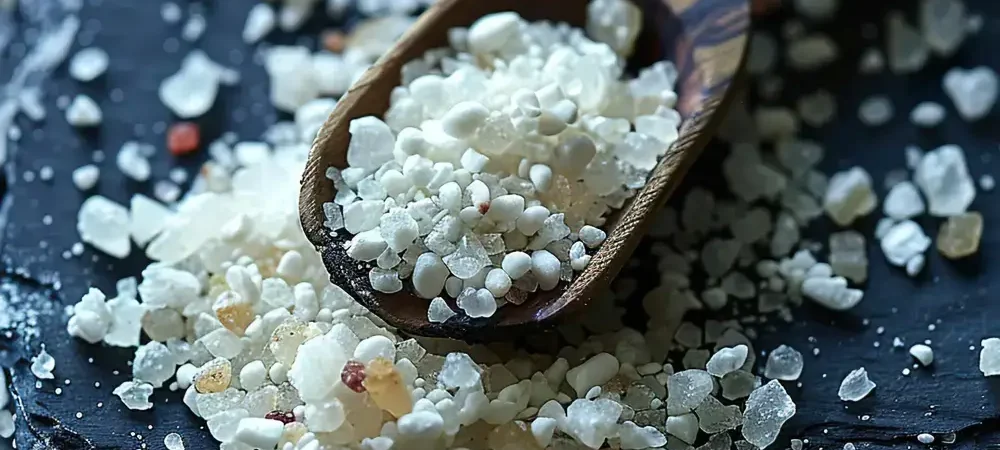Potassium Alginate
Uronic acid, a key sugar component of alginic acid, contains a carboxyl group on each unit, contributing to its high ion-exchange capacity. This property enables it to bind with various cations, forming distinct alginate salts.
Potassium alginate is a specific salt where potassium ions are attached to the carboxyl groups of alginic acid. Its properties closely resemble those of sodium alginate. It is soluble in both cold and warm water, forming a viscous solution, and it gels instantly upon contact with polyvalent cations like Ca2+.
One of its primary uses is as a gelling agent in dental impressions.
Applications

Food Applications
Potassium alginate serves as a thickener and gelling agent, and is increasingly being considered as a substitute for sodium alginate.
It has gained popularity in low-sodium diets, as it provides a suitable alternative to sodium alginate, helping to reduce sodium intake. Additionally, potassium alginate is becoming more common in health foods that use alginate as a dietary fibre source.
Health Benefits and Blood Pressure Control
In health food products, potassium alginate has drawn attention due to its potential bioactivity. As a natural dietary fibre, alginate is not digested by the body but is excreted, while still having beneficial effects by ion-exchanging with cations before being eliminated.
Research suggests that potassium alginate has a significantly higher capacity to adsorb sodium ions compared to other polysaccharides. This ability helps the body expel sodium, which has been shown to aid in managing high blood pressure. In addition to its traditional fibre benefits—such as reducing blood cholesterol and improving digestion—potassium alginate’s ability to help eliminate excess sodium has made it a promising ingredient for those looking to manage hypertension.
As awareness of its additional health benefits grows, potassium alginate is increasingly seen as a valuable ingredient for both dietary fibre supplementation and blood pressure control.

Industrial Applications
Uronic acid, a component of alginic acid, contains a carboxyl group on each unit, which gives it high ion-exchange properties. This ability to bind with various cations leads to the formation of unique alginate salts.
Potassium alginate is a salt formed by bonding potassium ions with the carboxyl groups of alginic acid. Its properties are similar to those of sodium alginate, as it dissolves in both cold and warm water, forming a viscous solution. Upon contact with polyvalent cations like Ca2+, it forms a gel.
Potassium alginate is widely used in the food industry as a gelling agent, but it also has significant applications in various industrial sectors.

Cosmetic Applications
In cosmetics, potassium alginate is used for its thickening, gelling, and stabilizing properties. It is commonly found in products such as face masks, lotions, and creams where it helps to enhance texture and create smooth formulations. Its ability to form a gel in the presence of specific ions makes it valuable for controlled-release systems in cosmetic products.
Additionally, potassium alginate’s ability to retain moisture and its smooth texture make it an ideal ingredient for skin care formulations aimed at providing hydration and skin protection.

Pharmaceutical Applications
In the pharmaceutical industry, potassium alginate plays a key role as a gelling agent and stabilizer in the formulation of oral and topical drugs. Like its sodium counterpart, potassium alginate is used to form controlled-release systems, particularly in tablets and capsules. It swells in the presence of water and can be utilized for targeted delivery, ensuring the gradual release of active ingredients in the digestive system.
Moreover, potassium alginate has bioactivity that can be leveraged in health-related formulations. Research has shown that it can help with the excretion of excess sodium from the body, which is valuable for managing hypertension. As a dietary fiber, it also promotes healthy digestion, adding to its range of benefits in health and wellness applications.
As demand for natural ingredients and innovative solutions grows, potassium alginate’s role in pharmaceutical formulations is expanding, particularly for its dual benefits in health promotion and as an effective excipient in drug delivery systems.
